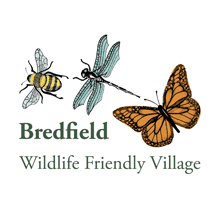“What sort of insects do you rejoice in, where you come from?” the Gnat inquired. “I don’t rejoice in insects at all,” Alice explained, “because I’m rather afraid of them …”
Lewis Carroll’s words from Alice through the Looking-Glass neatly frame the theme of this article about insects. As we will see, the well-being and survival of the human species relies upon insects, yet – with some exceptions – we do not rejoice in them. On the contrary, we tend to see them as insignificant, a nuisance, a pest or something to be afraid of; at worse, something to spray, trap, kill and eradicate. Even on the Bredfield Wildlife-friendly Village Facebook page, comments and pictures of birds, animals and flowers tend to receive a good number of ‘likes’, but comments and pictures of insects usually receive fewer.
If I had enough space, I might begin to persuade you that insects are fascinating and often beautiful creatures. I’d start with butterflies, but then soon have you in awe at the wonder of beetles and bees. Perhaps! However, my most important mission here is not to get you to ‘rejoice’ in insects, but to appreciate how essential they are and persuade you that it is worthwhile giving them a helping hand.
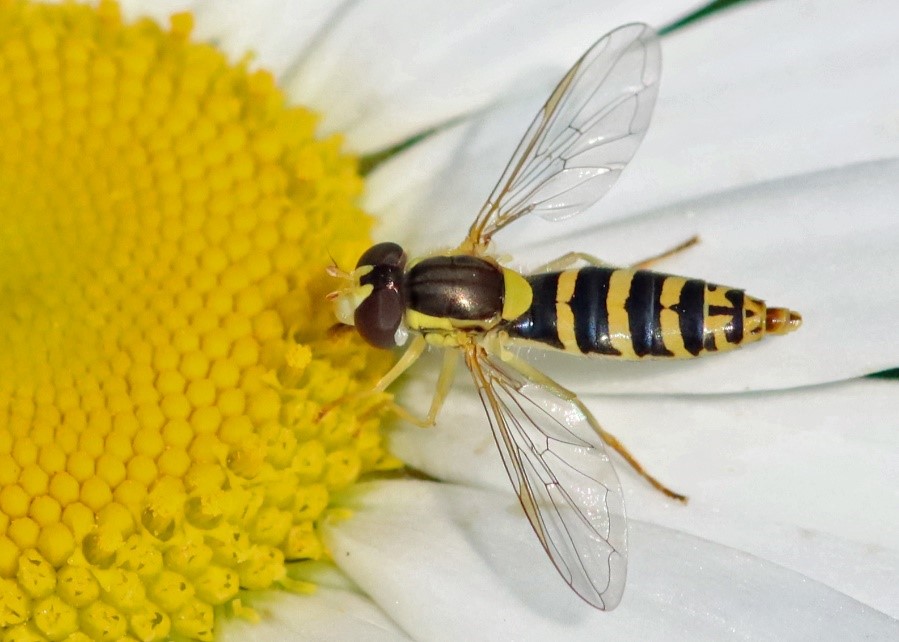
Long Hoverfly 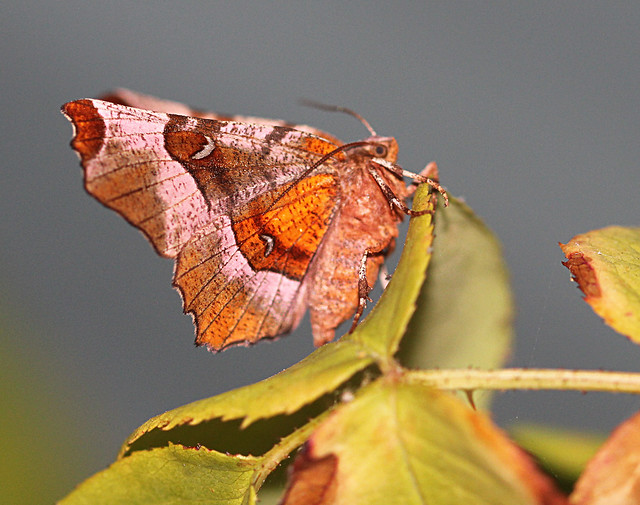
Purple Thorn moth 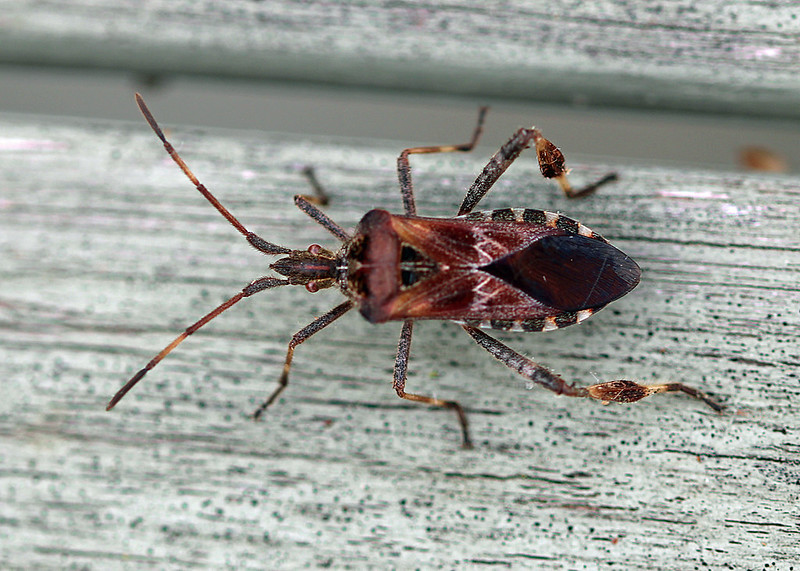
Western Conifer-seed Bug
Let’s begin by reciting an old adage: “Great fleas have little fleas upon their backs to bite ’em, and little fleas have lesser fleas, and so ad infinitum.” The first thing this adage refers to is the food chain. The Sparrowhawk eats the Blackbird; the Blackbird eats the caterpillar; the larvae of a parasitic wasp devour the caterpillar; and an even smaller species of parasitic wasp devours the larger species. If most flying insects became extinct, there would be no Swifts or Swallows (and probably more mosquitos) in Bredfield. Without the insects that prey on other insects – dragonflies, ladybirds, lacewings, wasps, etc – there would be more ‘pests’. Insects are crucial agents of biocontrol. Lastly, 87% of all plant species require animal pollination, which is mostly done by insects. If it were not for insects, we would lose our flowers, our crops, and many of our trees. (Unless, that is, you consider it possible to do all this pollination by hand!)
You may have read, or heard from David Attenborough, that several scientific studies have revealed a dramatic decline in insect populations during recent decades. From these studies, the term ‘insect apocalypse’ has been coined to describe a bleak future scenario. On a more anecdotal level, I have heard local people saying there are far fewer wasps around this year. In one way, this might seem to be a good thing as it means you can eat your picnic in peace, but in the grander scheme of things it is a very worrying trend. What is causing this ‘insect apocalypse’? There are a range of causes: a loss of suitable environments; the wide use of pesticides that have spread beyond arable fields and have leached into the soil and waterways; disorientation caused by urban light pollution (luckily, not an issue in Bredfield); and climate change. A heady mixture, with each exacerbating the effect of the other. If the Lord gave us jurisdiction over the animal kingdom, I doubt whether it was His intention for us to exterminate everything he had created.
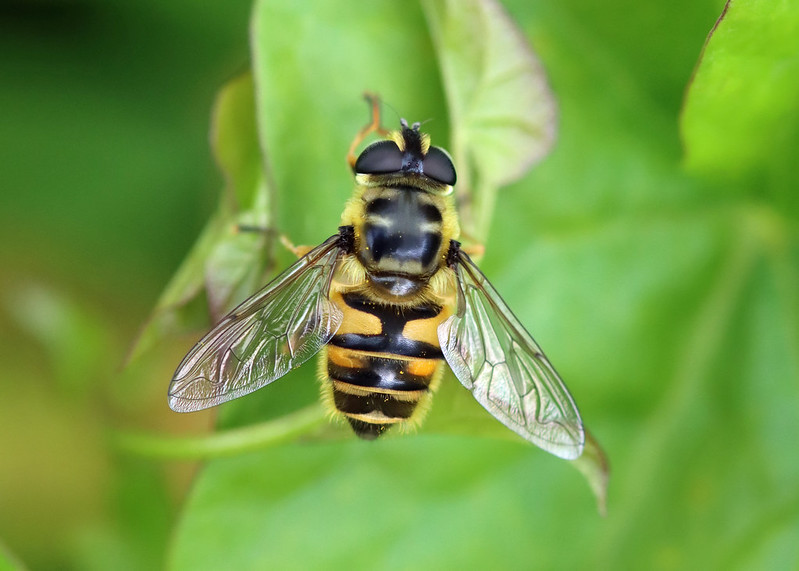
Batman Hoverfly 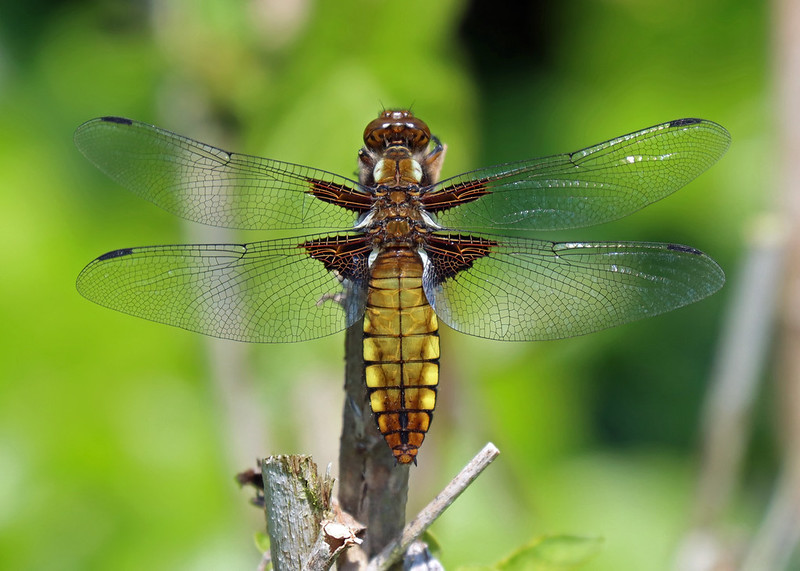
Broad-bodied Chaser 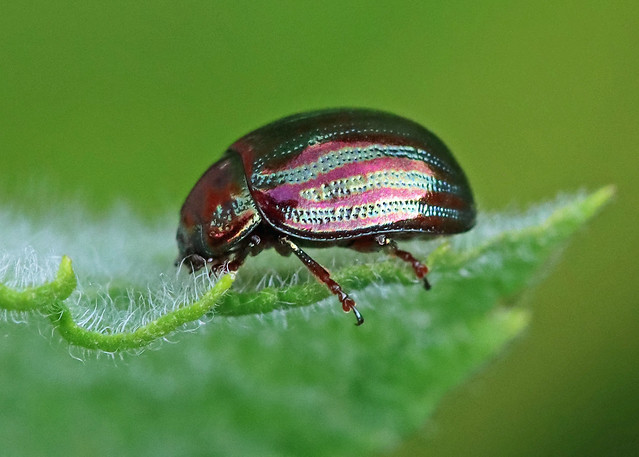
Rosemary Beetle
Living here in Bredfield and sat in our gardens, these larger causes can appear way beyond our reach. What can one individual or family do to prevent an ‘insect apocalypse’? Well, your Bredfield garden may be of more assistance than you appreciate; it can be a haven where insects and other wildlife can thrive. Of course, one garden won’t make a significant difference, but a collection of gardens ups the scale considerably. Private gardens in Britain cover an area bigger than all of the country’s nature reserves combined, estimated at over 10 million acres. Add to that community green spaces, and the size of the potential contribution to environmental care increases even more.
The Bredfield Wildlife-friendly Village website contains lots of information and links about wildlife-friendly gardening. There isn’t room here to rehearse all the various way you can make your garden wildlife-friendly, but I would just like to say something about killing insects through spraying chemicals. Often, when I search on Google for more information on insects, the first four or five results are not about the natural history of the insects, but about some product I should buy to kill them. Lots of companies and services play on our dislike and fear of insects to sell us products to annihilate them. In the case of mosquitos, this might be understandable but, in other cases, it becomes rather ridiculous. On Amazon, I found a spray to kill Woodlice! Woodlice are the most benign creatures and live in our compost heaps, helpfully breaking up organic matter ready to spread on our garden vegetables. If you have Woodlice or Silverfish in your house, you probably have damp. Much better to cure the damp, rather than spending your money on a toxic spray. Pesticides (and the active ingredients in many herbicides) have a proven, seriously detrimental effect on insects. They kill more than the targeted species, and highly toxic substances leach into the soil and ground water. So, here’s a recommendation and a plea: resist the marketing sell of the chemical companies; unless it is a final resort, cease to use pesticides; and make use of all the readily-available advice about alternative methods of ‘pest control’.
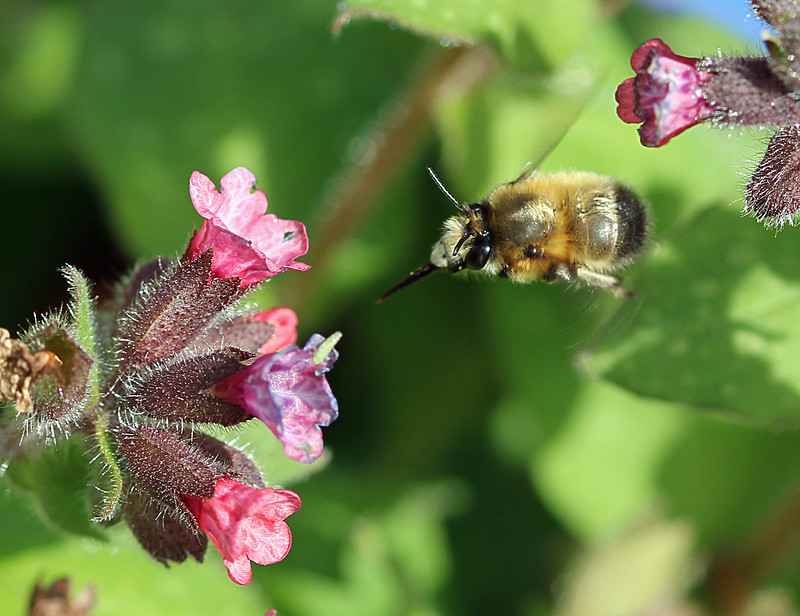
Hairy-footed Flower Bee 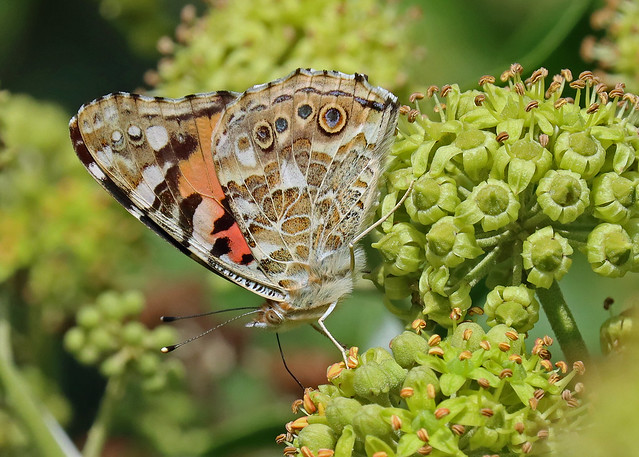
Painted Lady 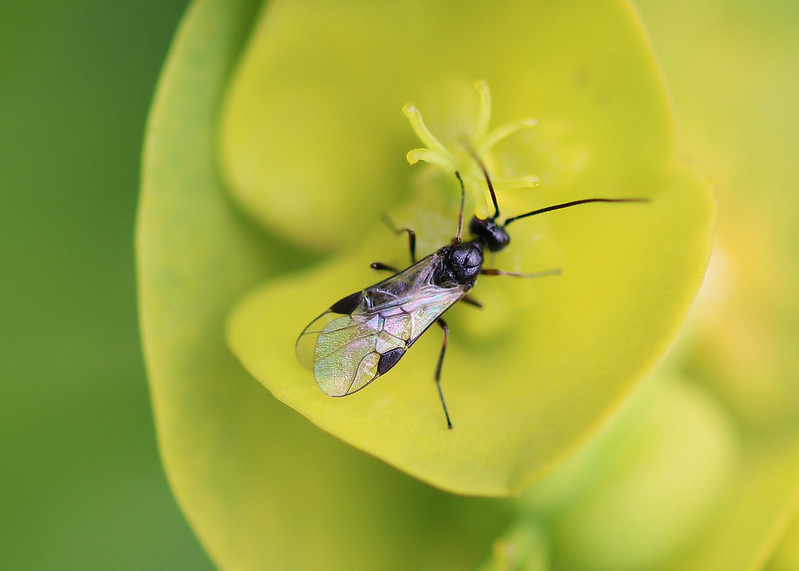
Tersilochinae wasp
The Bredfield Wildlife-friendly village project is a fairly low-key affair, but through our Facebook page, our website, Nature Notes articles in The Lantern, and the occasional meeting, we aim to enhance engagement with nature and, through that, encourage pro-nature behaviours. We don’t have to go so far as to ‘rejoice’ in insects, but we can appreciate them and the role they play. At the very least, we can just tolerate them a little more!
I’ll conclude with the words of Professor Dave Goulson who, in his book Silent Earth, says this about reversing the trend and securing a safe future for insects and for us:
“The first, and perhaps the hardest, step to achieving such a future is to engage with the public – to convince people, one way or another, that insects are important, and that they need our help. People will not take action to help insects unless they care about their fate. Once we have everyone on board, the rest should be easy …”
I hope that this short article has done something to convince you that insects are important and deserve our help.
All photographs of insects in this article were taken in Bredfield, by the author
